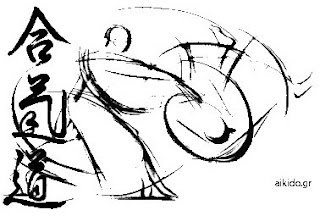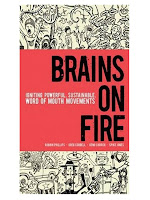Friday, June 3, 2011
What are you in awe of?
"The most beautiful thing we can experience is the mysterious. It is the source of all true art and all science. He to whom this emotion is a stranger, who can no longer pause to wonder and stand rapt in awe, is as good as dead: his eyes are closed." - Albert Einstein
Friday, April 22, 2011
Simplify
"To simplify where you know little is easy. To simplify where you know a great deal requires gifts of a different order: unusual penetration of mind and, above all, sheer nerve."
~Edmund S. Morgan, Yale historian
~Edmund S. Morgan, Yale historian
Sunday, February 27, 2011
Wave and Muscle
“The breaking wave and the muscle as it contracts obey the same law. Delicate line gathers the body's total strength in a bold balance. Shall my soul meet so severe a curve, journeying on its way to form?”
-Dag Hammarskjold
In 1953, soon after his appointment as United Nations secretary general, Hammarskjöld was interviewed on radio by Edward R. Murrow. In this talk he declared: "But the explanation of how man should live a life of active social service in full harmony with himself as a member of the community of spirit, I found in the writings of those great medieval mystics [Meister Eckhart and Jan van Ruysbroek] for whom 'self-surrender' had been the way to self-realization, and who in 'singleness of mind' and 'inwardness' had found strength to say yes to every demand which the needs of their neighbours made them face, and to say yes also to every fate life had in store for them when they followed the call of duty as they understood it."
[Henry P Van Dusen. Dag Hammarskjold. A Biographical Interpretation of Markings Faber and Faber London 1967 p 47]
Dag Hammarskjold, (29 July 1905 – 18 September 1961) was a Swedish diplomat, economist and author. He was the second Secretary-General of the United Nations from April 1953 until his death in a plane crash in September 1961. He is the only person to have been awarded the Nobel Peace Prize posthumously.
(Image: http://www.aikido-maastricht.nl/pics/spiral.jpg)
Saturday, February 5, 2011
What makes time stop for you?
Condé Nast Traveler's piece Slow Boat to Bliss
by Jeffrey Tayler was excellent and I loved the ending - begging the question: what makes time stop for you?

by Jeffrey Tayler was excellent and I loved the ending - begging the question: what makes time stop for you?
I turn my eyes to the sea below, turquoise expanses foaming with breakers. I've surrendered to the healing charms of the islands, finding, as Kazantzakis declared, that "happiness is a simple, unaffected thing: a glass of wine, a chestnut, a humble little brazier, the roar of the sea." I wake up each day here wanting nothing more than to inhale the salty sea air and hold my face to the light. This is it, the utter tranquillity I've been searching for. I close my eyes, my breathing slows. Time, for me, has stopped.

Wednesday, January 12, 2011
The Age of the Infovore
The title and opening quote of this book first caught my attention.
The Age of the Infovore: Succeeding in the Information Economy, by Tyler Cowen and "What lies behind us and what lies ahead of us are tiny matters compared to what lies within us." - Unknown Source
I thought the book's focus was on learning styles, in general, but the actual focus was more broadly on autism and Asperger's syndrome, as a comparison to our ways of accumulating information nowadays. There are some excellent quotes and ideas.
Please find some that I found of interest:
The Age of the Infovore: Succeeding in the Information Economy, by Tyler Cowen and "What lies behind us and what lies ahead of us are tiny matters compared to what lies within us." - Unknown Source
I thought the book's focus was on learning styles, in general, but the actual focus was more broadly on autism and Asperger's syndrome, as a comparison to our ways of accumulating information nowadays. There are some excellent quotes and ideas.
Please find some that I found of interest:
Ordering and manipulating information is useful, fun, alternately intense and calming, and it helps us plumb the philosophic depths (p. 3)
I would like to consider three stylized facts about today's world and put them together into a single coherent vision. The facts are the following: Culture is much cheaper and more accessible than before; we engage in more and more cultural sampling; and many intelligent people complain about how ugly contemporary culture has become. (p. 41)
I think of my blend as one very good way of absorbing information from the outside world, but it would be a mistake to elevate the informational purposes of the blend (however important) over the emotional import and the sense of connection. Most of all I think of my blend as an assembled set of stories and am assembled set of information packages. The blend is about writers I read, the public figures I read about, broader intellectual narratives about the world, and indirectly stories about my own self-discovery. To me the blend offers the ultimate in interest and suspense. Call me an addict if you wish, but if I am torn away from these stories for even a day I am keen to get back to "the next episode," so to speak. (pgs. 51-52)
Adam Smith, in his 1759 book on moral psychology, The Theory of Moral Sentiments, suggested that we enjoy and value an experience more if it took more self-command and more sacrifice to bring it about. (p. 81)
The reality is that most education requires the physical presence of other human beings. (p. 113)
...we need to overcome some of our cognitive biases. That's right, a lot of the problems of politics stem from human cognition. It's not always a question of strengthening "the good guys" who are fighting "the bad guys." We all tend to think we are the good guys more often than we really are. We fight when we should give in, we stick to our guns when we should change our mind, and we do not realize that we are sometimes part of the problem rather than the solution. If we are to improve politics, we need to help ourselves overcome these biases. (p. 193)
The final message of this book is about respect for the individual. The study of human neurology is important science, but it is not just science and it is not just a tool for diagnosis or medical intervention. It is also a path toward appreciating the diversity of the human spirit, the splendor of the individual mind, and the importance of respecting the individuality of each mind. (p.222)
Labels:
asperger's syndrome,
autism,
human neurology,
learning
Thursday, December 23, 2010
One Bullet Away
 We should remember that one man is much the same as another, and that he is best who is trained in the severest school.
We should remember that one man is much the same as another, and that he is best who is trained in the severest school.-Thucydides
"Nine-tenths of tactics are certain, and taught in books: but the irrational tenth is like the kingfisher flashing across the pool and that is the test of generals. It can only be ensured by instinct, sharpened by thought practicing the stroke so often that at the crisis it is as natural as a reflex. -T.E. Lawrence (pgs. 18-19)
"...five of the Marine Corps's leadership principles that helped me in the Fleet."
"First," he counseled, "you must be technically and tactically proficient."
"Second, make sound and timely decisions."
Fanning's third piece of advice was simple: "Set he example."
"Fourth, know your men and look out for their welfare."
"Finally," Fanning exhorted us, "train your men as a team."
(pgs. 22-23)
It was about cool under pressure. It was about detachment. We had to retain our ability to think when the world was crumbling around us. (p. 23)
The key consideration in any tactical move is "to turn the map around." Look at your own situation from your enemy's perspective. What are your vulnerabilities? Where will he hit you, and what can you do to defeat him? (p. 37)
Decerno, Communico, Exsequor - "Decide, Communicate, Execute."
a Marine's most deadly weapon - his mind. Novack had taught us about the combat mindset, both the tactical need to be a predator and the moral imperative to know where to draw the line. (p. 49)
Violence of action doesn't start with weapons and tactics. It starts in your head. (p. 50)
Hardness was the ability to face an overwhelming situation with aplomb, smile calmly at it, and then triumph through sheer professional pride. (p. 145)
"Improvise, adapt, and overcome" was a Marine Corps mantra for good reason. (p. 147)
I was taught the OODA loop, a four-stage decision-making process described by Air Force fighter pilot Colonel John Boyd: observe, orient, decide, act. That's all we did in the Humvee contact drills - observed the enemy threat, oriented on it, decided what to do, and did it. (p. 181)
(http://www.borders.com/online/store/TitleDetail?sku=0618773436)
Monday, November 29, 2010
Brains on Fire

I just finished reading Brains on Fire: Igniting Powerful, Sustainable, Word of Mouth Movements by Robbin Phillips, Greg Cordell, Geno Church, and Spike Jones and there were some great quotes that made me stop and think about our connections, communications and relationships to others.
Cool book jacket too!
...movements begin with the first conversation, that small group of deeply passionate and deeply dedicated people who believe. And plan. And pour blood, sweat, and tears into going out, finding kindred spirits, looking them in the eye, and talking with them about how they would shape this thing. They ask questions about engagement and participation, plant seeds, and ignite excitement. And the great thing about this laborious process is that it gets people talking with their friends in their own language about what they're helping to start (p. 26)
Quality trumps quantity, and as vice president of brand marketing at Fiskars, Jay Gillespie, told us, "For me, it's not about the numbers. It's about growing even deeper relationships." In other words, he'd rather concentrate on building meaningful connections with the members who are already part of the movement. And as that happens, more people will naturally be attracted to it (pgs. 62-63)
Moving from evangelism to ownership requires one big thing: sacrifice. True ownership calls for loyalty and the willingness of someone-a customer, an employee, a friend-to make an investment or personal sacrifice and accept shared responsibility for an organization's continued triumph. Whether it's taking the time to put up flyers or write a letter, spending the money to create their own swag, or any number of other activities, it's the real investment of personal time and resources in support of something the believe in (p. 89)
This reminded me of a writing by the late Aikido Master, George Leonard, in his book
The Way of Aikido: Life Lessons from an American Sensei
When the samurai Kikushi was ordained a bodhisattva [one devoted to lifelong service], his master told him, "You must concentrate upon and consecrate yourself wholly to each day, as though a fire were raging in your hair."
What is your passion, purpose or goal? How do you share your passions and goals with others?
Subscribe to:
Comments (Atom)